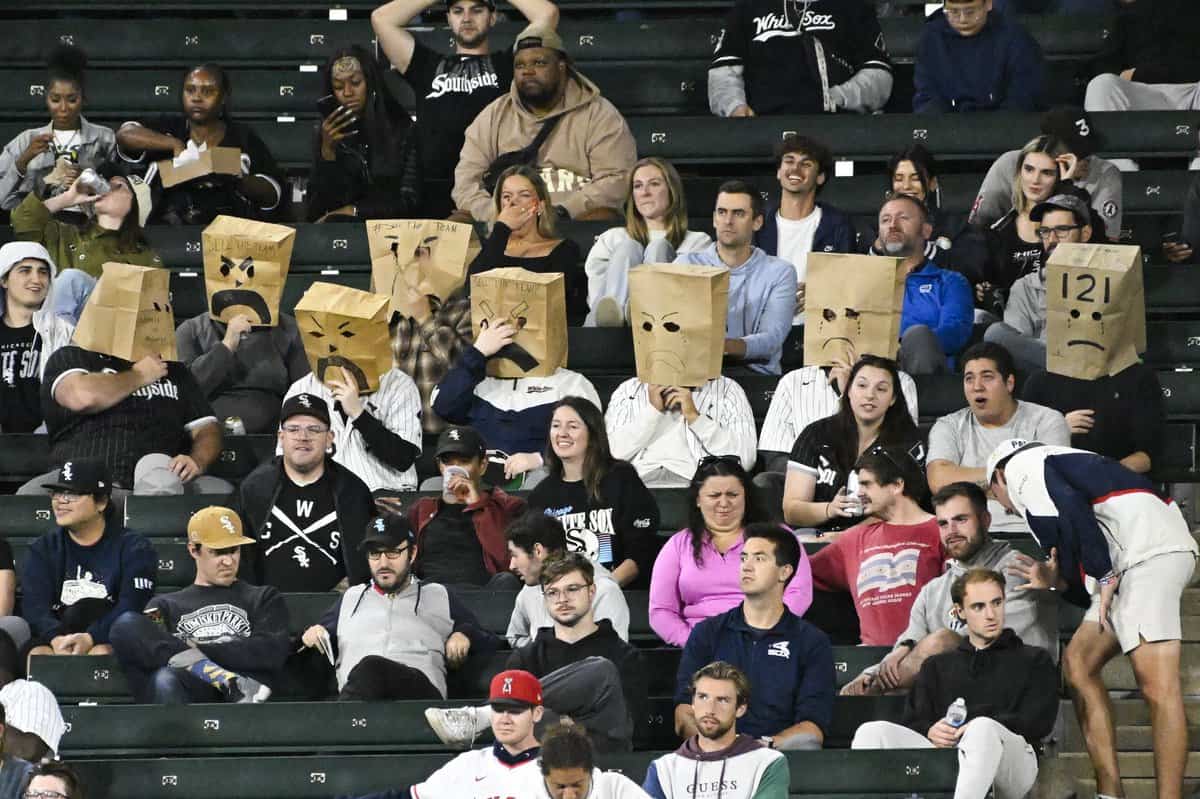The federally funded archeological dig into the lost colony that is the Chicago White Sox Major League Baseball franchise continued on Wednesday, with Jesse Rogers' month-by-month exploration into the 2024 debacle on ESPN.com. There's a whole lot to take away, but for me, the first thing it clarified was how Rick Hahn had two cracks at rebuilding the White Sox, and the same course of action led to the same problems that doomed both enterprises.
In 2015 and 2016, he counted on a bunch of veterans on short-to-medium-term deals to support the core four of José Abreu, Chris Sale, José Quintana and Adam Eaton and build out for the framework of a contender, only for their strong personalities and individual agendas to explode in two national media stories and at least one clubhouse brawl.
The collapse of Hahn's second attempt had more to do with investing in players who lacked the ability to stay at the top of their game than the failure of so many free agent patches, but from the dynamic Rogers describes, even a higher-functioning version of the roster might've fractured just the same.
]Pedro Grifol] was inheriting a splintered clubhouse. Liam Hendriks, then the team's most prominent pitching star, is distinctly an extrovert -- loud, friendly, accessible to the media, chatty. Three organizational sources say a rift had grown between Hendriks and some of the other veterans on the team, namely pitchers Kendall Graveman, Lance Lynn and Joe Kelly.
In December 2022, Hendriks was diagnosed with cancer. He went through treatment in the spring of 2023 before making his way back to the team. In late May, the White Sox front office planned a welcome back news conference, and the team arranged for players to be in the room as Hendriks spoke with the media for the first time -- an elementary show of support. Some veterans initially balked, and according to club sources, had to be talked into attending. The situation, one longtime White Sox staffer believed, was one of the worst things he had ever witnessed in professional sports.
This is a version of the Adam Eaton/Todd Frazier fight, in the sense that it involved a productive, outgoing, fan-friendly player whom multiple peers didn't hold in high regard, while Graveman was the subject of multiple LaRoche-like episodes in Seattle and Lynn and Kelly wear their corrosiveness as a leading personality trait.
Like everything else in 2024, it's just a lot more grim.
In the 2016 beef, Eaton eventually revealed himself as someone whose comments couldn’t be taken at face value when he called Drake LaRoche a leader (although I found his later lie about having a mortgage an even poorer reflection of his judgment). Hendriks’ radical transparency approach to speaking with the media doesn't earn him the same kind of two-faced reputation, as it probably would've come out sometime before his sixth Clemente Award nomination. The standard MLB player just isn't dispositionally or politically wired to share the same thoughts and beliefs coming from that one face.
Even accounting for Hendriks’ big personality playing better to the public than it does to the cloistered nature of the clubhouse, it requires another standard deviation from basic humanity to roll eyes at the attention drawn to a cancer battle. Think about what it takes for a White Sox employee to call something "one of the worst things he had ever witnessed in professional sports." Everybody around the White Sox is naturally conditioned to accept less and worse over time, and yet even in baseball's Roanoke, this behavior registered as particularly depraved.
Neglect, both benign and malignant, is a major theme of Rogers' article, and it's the reason why old beefs remain fresh and lessons go unlearned. Reinsdorf tends to his personal relationships at the expense of the franchise's relevance. Hahn and Kenny Williams never found a way to address any of the root faults with the roster, instead pinning all their hopes on the manager making it work.
Pedro Grifol turned out to be woefully in over his head, and when Chris Getz took over solely based on Tony La Russa's personal recommendation, Rogers said he provided little support to the on-field product. One specific example of the way poor processes can perpetuate: Getz, whose elevation required a waiving of the Selig Rule since no other candidates were considered, had to explain to Major League Baseball why he purged the coaching staff of its Latino members.
Two days later, Getz called Grifol to tell him he was making a change. Third base coach Eddie Rodriguez, assistant hitting coach Mike Tosar and bench coach Charlie Montoyo -- all of the White Sox's Latino staffers -- were also fired. Grifol is a lifelong friend of Tosar and knew Rodriguez from their days together in the Royals' organization. Getz thought that while Montoyo held the title of bench coach, Grifol was mostly leaning on Rodriguez and Tosar.
Getz believed that to get the White Sox to a better place, these were the right staff moves to make in early August. But he knew the optics of the choices were less than ideal. Getz called Michael Hill, MLB's senior vice president for on-field operations, to provide background for the decision. The league monitors the diversity of MLB coaching staffs and is expected to do so on the White Sox's next hires.
There are signs that Getz possesses a better awareness of particular pain points. He's made some hires the previous administration wouldn't, and I'm at least a little intrigued by the idea of installing a lacrosse player Navy SEAL lawyer in the owner's suite. It'll probably end up as gimmicky as "Project Birmingham," but perhaps it takes something so over-the-top to impress Reinsdorf into the slightest evolution.
I just can't take these isolated positive developments and think they're nearly enough to counter all of the organizational rot that dragged the White Sox to historic depths. Nobody should count on the product of a broken system to fix the system. At least not without immense amounts of education and therapy, and we all learned the last time that a degree from Michigan isn't nearly enough.






